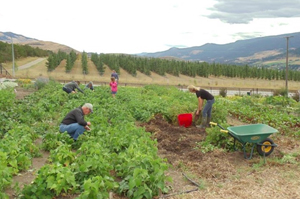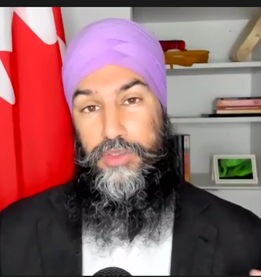Wednesday March 31, 2021 | BC & NATIONAL
by Mary P Brooke, B.Sc., Editor | Island Social Trends
Food security and post-pandemic economic recovery have areas of overlap. The COVID-19 pandemic — a public health emergency now in its second year — has laid bare how easily disrupted the food supply chain can be, and in terms of hard-hit employment sectors it’s now clear that women, youth and those seen as racialized have been significantly impacted.
Restoring opportunities to workers will be part and parcel of rebuilding the Canadian economy, and beyond that by providing career-supporting pathways there will be a broadening and strengthening of the economy, communities and families as individuals achieve greater financial security. Compare that to the last 20 to 30 years where increasingly more youth and women found themselves in ‘precarious work’ and what has come to be known as the ‘gig economy’ (which is just another term for cobbling together a living by any number of available means.
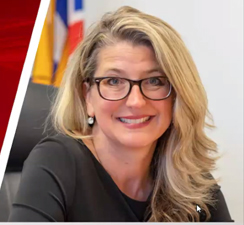
Yesterday in BC, Agriculture Minister Lana Popham told a Victoria Chamber of Commerce business audience said that food security in the province depends on about 11,000 temporary foreign workers to work in ‘food, fish and farm’. Those workers come from Mexico and countries in South America — some of them year after year, to support their families back home.
Popham said these are already the sort of jobs that are open to young Canadians as a new sector of available work. Various skill sets are needed within agriculture and food supply chain management, both at the ground level and in areas like product development and distribution.
Incentivizing youth and supporting women in the recovering economy is vital to NDP Leader Jagmeet Singh who today in a media session said that a recovery is not strong if it leaves people behind, particularly if it leaves those behind who are hardest hit by the pandemic.
He also sees food security as vital. “We need to always be looking at policies that help us ensure that we’ve got the capacity to feed our own nation, to feed ourselves with the resources we have here in Canada,” Singh said today.
He notes the scope of the sector and underscores the need to make it attractive to young adults aiming to build a secure economic lifestyle. “We need to have better policies in place to support farming, and makes sure that farming is a viable and successful opportunity for someone in terms of a career,” Jagmeet Singh said today.
Singh had been speaking with youth in Montreal this morning before the media session. He says that encouraging young people is vital in terms of recovery. “A recovery is not strong if it leaves people behind, particularly if it leaves those behind who are hardest hit by the pandemic.”
Despite what Singh called “positive forecadting’, he is “worried that the forecasting just means a return to an economy as usual where women aren’t supported who’ve been hard hit, young people aren’t supported who’ve been hard hit”.
“For young people we need to have a clear process specifically that incentivizes young people to get back into the workforce. And the simplicity of this simple statement is its power: “Policies determine outcomes,” said Singh.
“If we have the right policies in place, that acknowledge the importance of food security and making sure young people are part of the recovery, we can achieve the goal of getting young people involved again.”
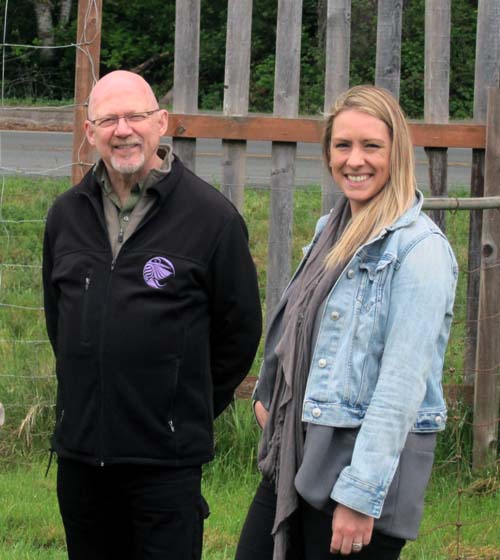
On South Vancouver Island, long-time MP Randall Garrison (Esquimalt-Saanich-Sooke) has been a steadfast advocate for food security. About 90 percent of food consumed on the island is imported from beyond our shores, which adds the cost and environmental impact of transportation by air, sea, and road. Over the years, Garrison has toured local farms and areas of food production in the region and regularly attended the Sooke Fall Fair and other agricultural events.
Additional areas of the agriculture sector include the need to maintain seed production and distribution. Last year in particular during the first wave of the COVID pandemic, many new-to-gardening urban people drew heavily on available seed supply from local stores and farm suppliers.
For many years on Vancouver Island the ‘Seedy Saturday’ events have promoted the importance of the availability of seeds within food security, especially those that are locally grown. Minister Popham made reference to this yesterday as well in her presentation to the business community via Zoom.

Also in the South Vancouver Island area, Alistair MacGregor, MP (Cowichan-Malahat-Langford) is a strong advocate of local agriculture. He and his family live on an active farm in the Duncan area. He has worked to see the support of small businesses in the area during the pandemic.
COVID impacts:
Said Popham yesterday: “The pandemic threw challenges our way that we hadn’t predicted, and we had to be very nimble to meet those challenges quickly to make sure British Columbians could put food on their tables.”
There was “incredible innovation in the last year”, says Popham. She says “we’re not going back to where we came from before the pandemic” Last year people were “panicked and afraid” and they “did a lot of enthusiastic shopping”, said BC’s Agriculture Minister who has been a career-long agriculture enthusiast. “That made it seem like we were running out of supplies, but retailers weren’t used to the way we were buying.” Part of the challenge was about stocking shelves in a timely manner, not that the supply chain was running out of food (or toilet paper for that matter), she said.
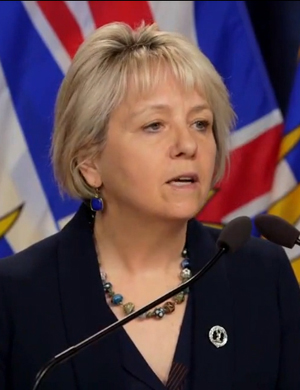
Popham also noted that it’s important to personalize the stories of the more than 11,000 people who are temporary foreign workers (who normally live outside of Canada). “If we didn’t have them we would be in trouble,” she said yesterday, adding that young Canadians are invited to work in the farm, fish and agriculture sector to be part of preserving the integrity of food. “We have thousands of jobs available in food, fish and agriculture.”
Restaurant sector:
She said the restaurant sector is also impacted during the pandemic. Restaurants have either not been able to source some food products or due to public health restrictions and orders have seen some inventory go to waste.
The current three-week public health COVID circuit-breaker in BC (March 29 to April 19, 2021) as announced by BC Public Health Officer Dr Bonnie Henry includes restaurants going back to take-out and delivery only (dine-in suspended). COVID case numbers have remained high in BC for several weeks.
Municipalities are doing their part to support the restaurant sector, including in Langford on the west shore of Vancouver Island where the use of sidewalks, boulevards and patios has been extended for three years, as announced this month. This supports business investment in capital improvements to support outdoor dining which allows for expanded business capacity.


